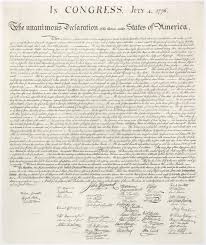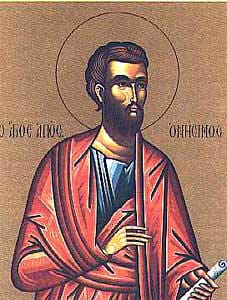As has been written here on many occasions, Alexis de Tocqueville’s Democracy in America remains a vital resource for understanding the American mindset. What makes Tocqueville so valuable is that he was not necessarily an advocate of democracy. He saw in it great possibilities, but also was very much aware of the dangerous pitfalls that loomed in the background especially as the society around it rejected both religion and morality. In that way it has an almost prophetic quality about it, especially when it comes to the despotic and totalitarian temptations that all members of a democratic society ought to fear. Particularly prescient and especially relevant to today is a passage in which he cautions against totalitarianism that is smuggled in through a Nanny State:
“Above this race of men stands an immense and tutelary power, which takes upon itself alone to secure their gratifications and to watch over their fate. That power is absolute, minute, regular, provident, and mild. It would be like the authority of a parent if, like that authority, its object was to prepare men for manhood; but it seeks, on the contrary, to keep them in perpetual childhood: it is well content that the people should rejoice, provided they think of nothing but rejoicing. For their happiness such a government willingly labors, but it chooses to be the sole agent and the only arbiter of that happiness; it provides for their security, foresees and supplies their necessities, facilitates their pleasures, manages their principal concerns, directs their industry, regulates the descent of property, and subdivides their inheritances: what remains, but to spare them all the care of thinking and all the trouble of living?”
Democracy in America Vol. II, Sect IV Ch. VI
Although this ought to be obvious, Tocqueville’s criticism rests upon an abuse of authority. What makes this type of abuse so pernicious is that it is so subtle that it is easy to miss at first because it is smuggled in as a form of paternal authority. As the name suggests, paternal authority serves a legitimate and vital function because it secures the survival and development of an immature person. But this type of authority has a pedagogical aim such that it assures its own disappearance. The goal is to discipline the person such that self-discipline comes about; govern them so that self-government is easy. Only when that happens can the person truly be free. Paternal authority then provides security so that freedom develops. Once the full flourishing occurs, this authority has outlived its usefulness and fades away.
Freedom and Security
The subtlety then comes in the relationship between security and freedom. The proper use of paternal authority is that it is ordered towards freedom while providing security. In its proper form there is no tradeoff between the two. Once the person has reached maturity and able to properly govern their own freedom, paternal security is no longer necessary. Able to properly discipline themselves the children have the liberty to secure for themselves what they need to thrive. In having true freedom, they have security, a security that minimally depends upon others. This is not to advocate for a rugged individualism, but to see security in its proper light. There are still aspects such as policing and military protection for example that will require society, but belonging to the common good, they never take away liberty but expand it.
Tocqueville’s point is that one of the sure signs that authority has outlived its usefulness, or has become an outright abuse, is that it takes away freedom. And in so doing it creates and encourages a “perpetual childhood.” Authority becomes “absolute and minute” because it becomes a form of control. It does all of this in the name of security and the people willingly trade their freedom, because, lacking the necessary virtue to govern themselves, they must have security.

If you wanted to create a populace that willingly made this tradeoff, you would start by attacking the legitimate exercise of paternal authority. Paint the paterfamilias as a dufus and ensure that he acts irresponsibly. Break up the school of freedom the family by making divorce easy. Separate children from their parents as much as and as early as possible. Teach them “values”, mostly economic and political, and not virtues. Mock virtue as repression and substitute license for true liberty. Once license replaces liberty, there appears to be no tradeoff between security and liberty (which is really license) because those in power still, to use Tocqueville’s terms, “facilitate their pleasures.”
All of this might have a libertarian ring to it, but that it to miss the fact that freedom is wedded to virtue. Libertarians tend to treat freedom as an end rather than a means. They demand liberty to do what pleases them provided they do not infringe upon others. This too becomes license and the trap is laid in reverse. Lacking the virtue necessary for self-control, they must look elsewhere for security. We cannot turn a blind eye to vice nor can we enthrone it as a “right”. There may be times when we tolerate it, but it can never seen as a true exercise of freedom.
Tocqueville the Prophet
Tocqueville’s words are particularly relevant today because they illumine the path we are currently on towards totalitarianism. In the midst of a plague, the government has taken away the natural rights of its citizens all in the name of security. Notice that the “liberties of vice” are still available as “essential businesses”, a literal bread and ciruses approach in which Liquor stores, recreational marijuana dispensaries, unlimited and free access to Pornhub, and so forth. Heck, even the occasional encounter facilitated by Tinder is, according to Health Czar Anthony Fauci, an option “if you want to take the risk.” But you can’t take the risk to go to Mass, the one place where both security and freedom grow.
By creating an atmosphere of fear, we have been sold the bill of security. We are living on the cusp of tyranny, even if we believe it to be a “benevolent” tyranny. Those are the worst kind because they admit of no limits. As CS Lewis put it, “Of all tyrannies, a tyranny sincerely exercised for the good of its victims may be the most oppressive. It would be better to live under robber barons than under omnipotent moral busybodies. The robber baron’s cruelty may sometimes sleep, his cupidity may at some point be satiated; but those who torment us for our own good will torment us without end for they do so with the approval of their own conscience.”
We would be wise to listen to both Lewis’ words and Tocqueville’s. Trading freedom for security is the surest path to tyranny and results in the loss of both freedom and security.















